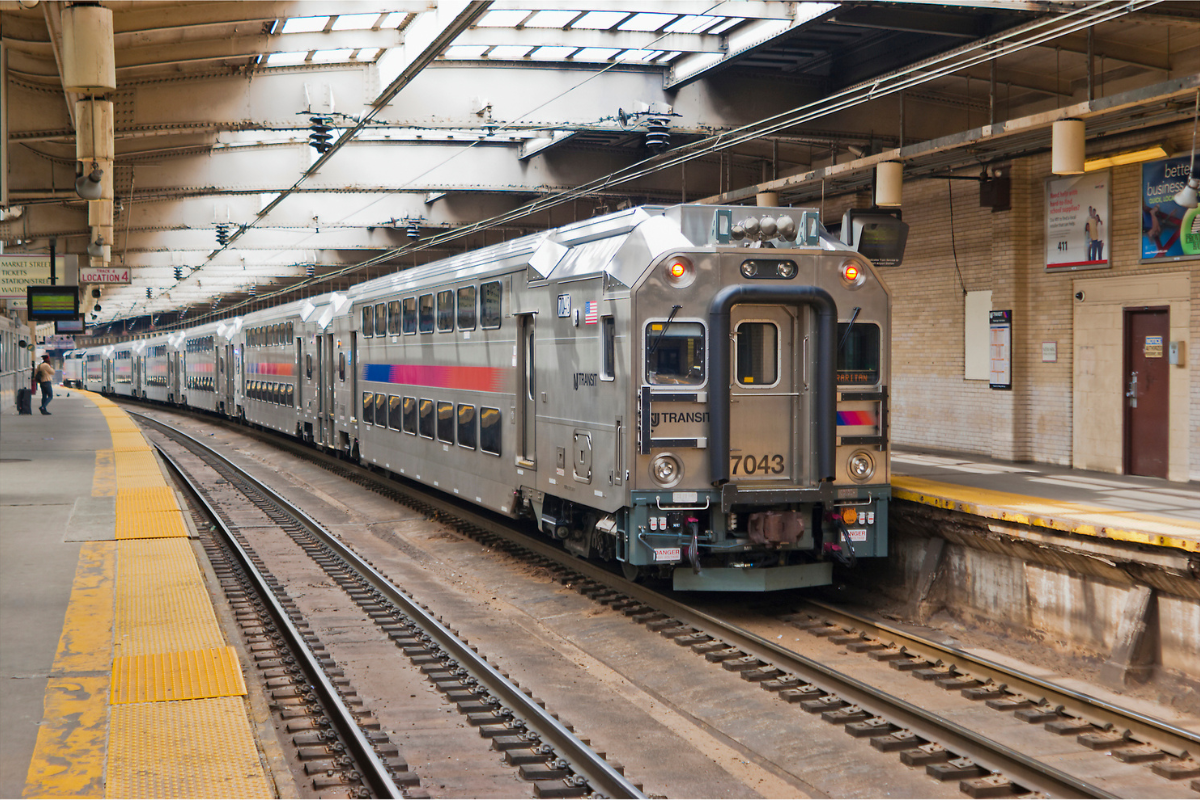The nation’s third-largest transit system is on the brink of a historic shutdown as NJ Transit engineers prepare to strike at 12:01 a.m. on Friday, May 16. This impending walkout threatens to upend daily commutes for approximately 350,000 riders, including 70,000 who travel to New York City daily. The Brotherhood of Locomotive Engineers and Trainmen (BLET) announced the strike after months of failed negotiations over wage increases, with union members seeking parity with Amtrak and MTA salaries.
NJ Transit officials warn that all train services will completely halt. According to The Associated Press, this stop will force commuters to seek alternative transportation options. However, these alternatives can accommodate only 20% of regular rail passengers. The strike marks only the second in the agency’s history, with the last major walkout occurring in 1983 and lasting 34 days. This labor dispute centers on wage disagreements. Engineers currently earn an average of $113,000 annually, and they want an increase to approximately $170,000.
Who Will Feel The Impact Of The NJ Transit Strike
The strike’s effects will extend far beyond daily commuters, creating ripple effects throughout the region’s transportation network. Suburban communities along NJ Transit’s extensive rail network will face the most severe disruptions. Many towns will have limited alternative transportation options. Newark, Hoboken, and Jersey City business districts will likely see decreased foot traffic as employees struggle to reach workplaces.
Weekend travelers, tourists, and attendees of events at MetLife Stadium will need to make alternative arrangements. The agency has already announced cancellations of special event services. Healthcare workers, retail employees, and other essential personnel who rely on public transportation face particularly challenging circumstances, as many work shifts begin or end during hours when alternative services may be limited.
What The NJ Transit Strike Means For ‘Cowboy Carter’ Fans In New Jersey
With five upcoming performances in the state, Beyoncé fans should make a commute plan now. From May 22 to May 29, the “Cowboy Carter” tour will take on MetLife Stadium. According to Gothamist, NJ Transit spokesperson John Chartier shared on Tuesday that he did not know if the 50,000 people who can fit into the venue for a concert will be able to take mass transit to the shows.
“Meadowlands service for the Beyonce concert remains TBD,” said Chartier.
The recent rerouting of Shakira fans in New Jersey, however, is a cautionary tale for “Cowboy Carter” concertgoers. NJ Transit previously announced rail and bus service cancellations to two Shakira concerts at MetLife Stadium. Officials encourage using alternative transportation methods. However, they also warn that rideshare services will likely see higher demand and possibly wait times up to two hours.
Alternative Transportation Options Available
NJ Transit has established emergency contingency plans, though officials acknowledge these measures will fall far short of normal capacity. Four major park-and-ride locations will serve as hubs for charter bus services connecting to key destinations. NY Waterway plans to enhance ferry services from various terminals to accommodate additional passengers.
The Port Authority will increase bus services, though capacity remains limited at the already-crowded terminal. Private transportation provider Boxcar has launched bookable emergency routes through its app. The company is targeting commuters in areas with limited alternatives. Officials strongly recommend working from home when possible and advise essential travelers to plan routes well in advance. The current standoff represents a rare breaking point in labor relations at NJ Transit. The 1983 strike lasted over a month and occurred in a different commuting landscape with fewer daily riders and limited alternative options.
Today’s dispute follows years of tension over compensation. Union representatives point out that engineers have received no wage adjustments since 2019. The wage gap between NJ Transit engineers and their counterparts at Amtrak and MTA has widened, fueling frustration among union members. Talks continue in Washington, D.C., with federal mediators attempting to bridge the substantial gap between the parties.





